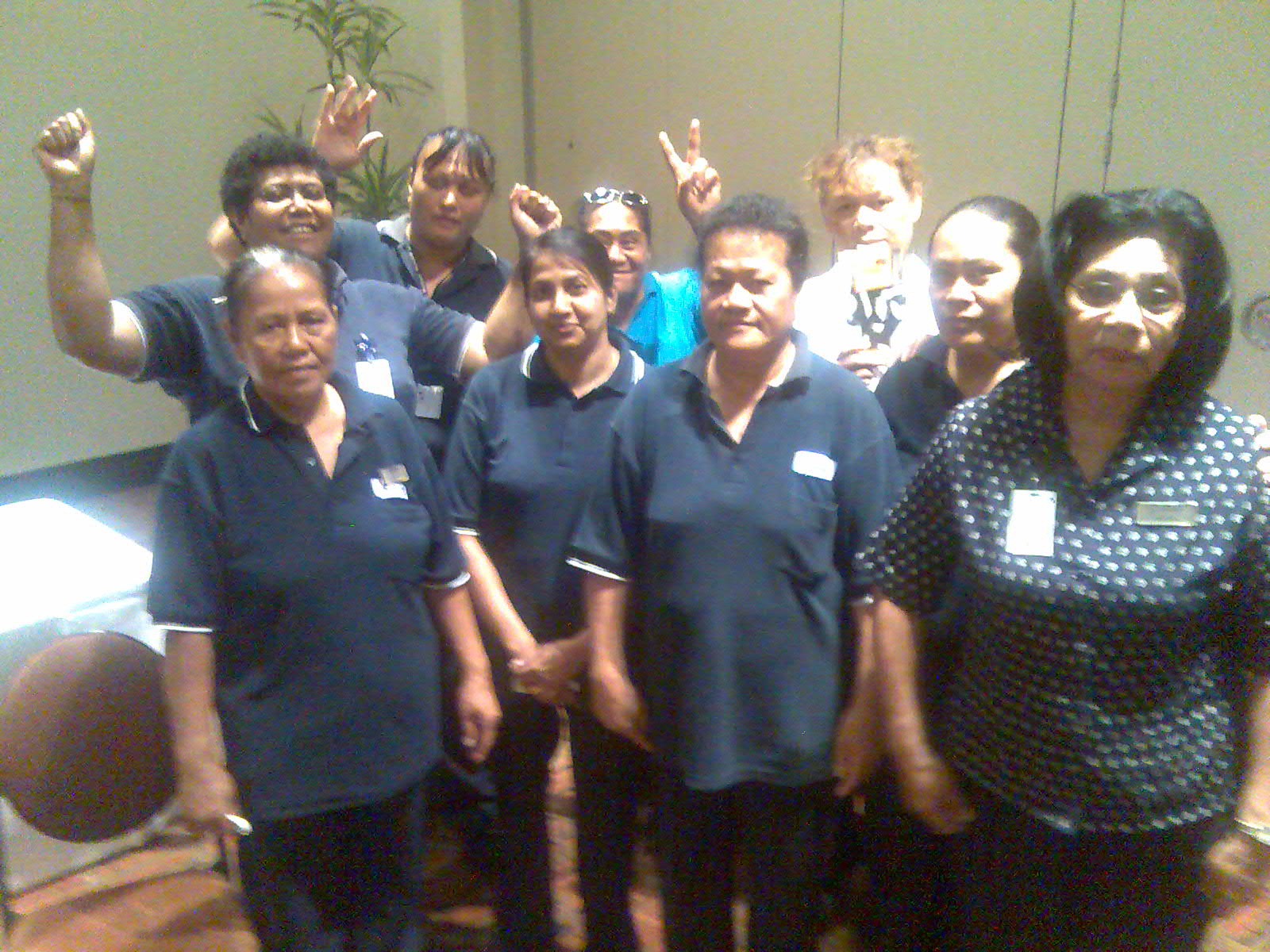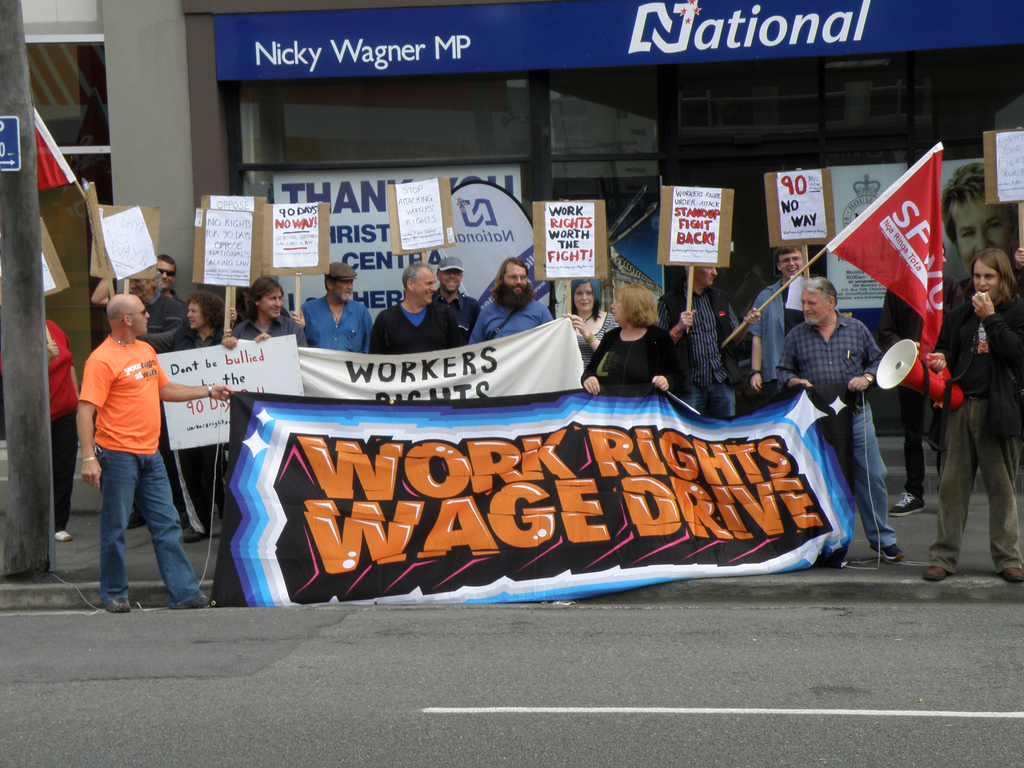
Press Release: Workers Rights Campaign
Canterbury’s newly-formed Workers Rights Campaign is planning a symbolic picket at the offices of Government M.P. Nicola Wagner to protest at the new “fire-at-will” provisions of New Zealand’s industrial law.
Campaign spokesman Paul Piesse said today that the justification for the new law, which allows employers to sack workers within the first three months of their employment without giving any reason at all, let alone any justification, is a hypocritical sham.
The big lie, Mr Piesse said, is the deceit that the law would encourage employers to take on people they otherwise would not. Employers, he said, only ever employ people when they really need them. Their objective is to maximise their profits – they don’t function as a social service to the unemployed.
Neither do they engage the least appealing applicant; and nor will they because of the new law.
The Workers Rights Campaign says that the law is a breach of civil rights, in that it discriminates against a specific group of citizens – job applicants – distinguishing them from those already employed.
Mr Piesse added that the law is aimed at the most vulnerable: the young; casual and part time workers; those made redundant from their previous employment – likely to be a rapidly increasing number of New Zealanders; anyone changing jobs; and older workers.
The Workers Rights Campaign will picket the premises of any employer availing him/herself of this contemptible new law when it is brought to its attention.
Mr Piesse said that the new law was just the start of an employer-Government campaign to make working people pay the price of the inevitable and cyclic crisis of the capitalist system.
The picket at Wagner’s office, 189 Montreal St Christchurch, will take place on Friday 27th February at 1 p.m.







